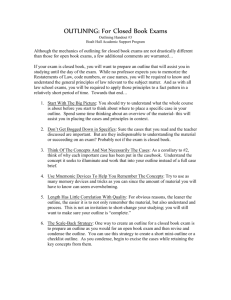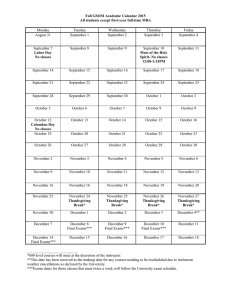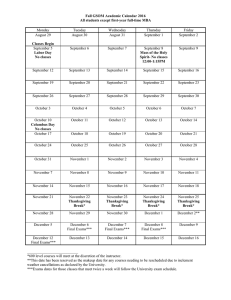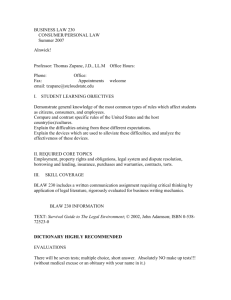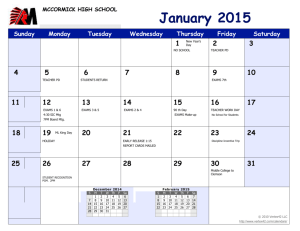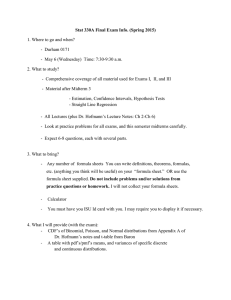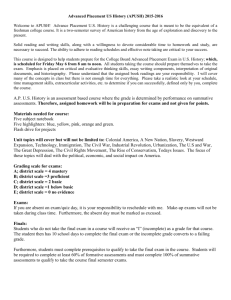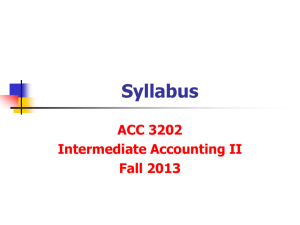Outlining-Handout
advertisement
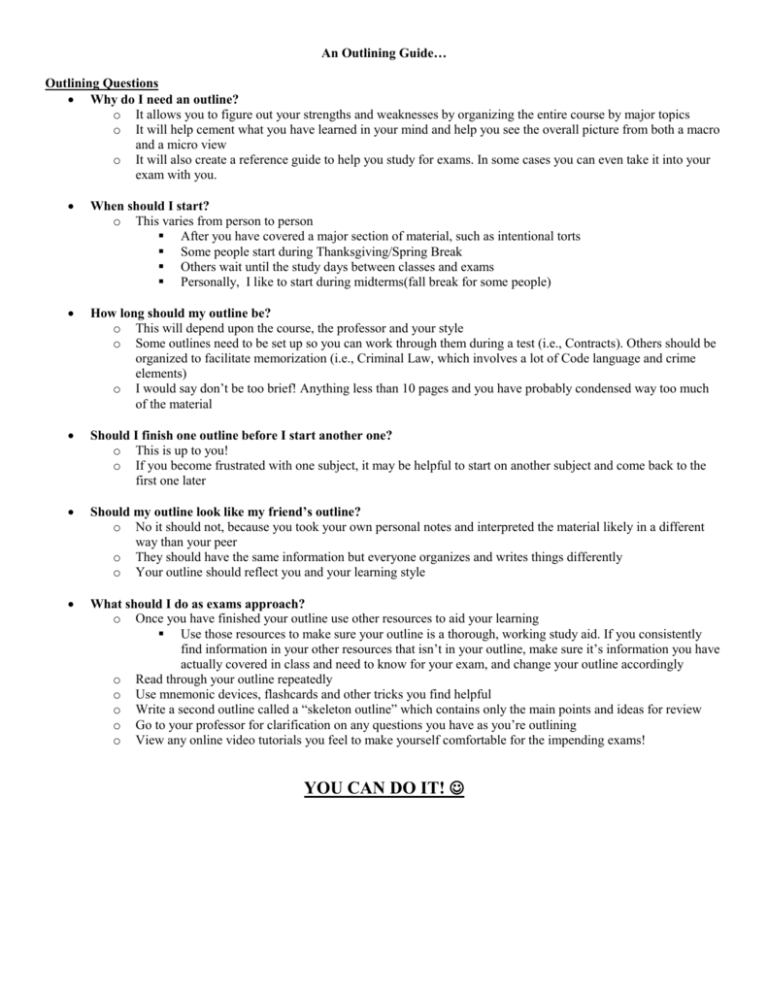
An Outlining Guide… Outlining Questions Why do I need an outline? o It allows you to figure out your strengths and weaknesses by organizing the entire course by major topics o It will help cement what you have learned in your mind and help you see the overall picture from both a macro and a micro view o It will also create a reference guide to help you study for exams. In some cases you can even take it into your exam with you. When should I start? o This varies from person to person After you have covered a major section of material, such as intentional torts Some people start during Thanksgiving/Spring Break Others wait until the study days between classes and exams Personally, I like to start during midterms(fall break for some people) How long should my outline be? o This will depend upon the course, the professor and your style o Some outlines need to be set up so you can work through them during a test (i.e., Contracts). Others should be organized to facilitate memorization (i.e., Criminal Law, which involves a lot of Code language and crime elements) o I would say don’t be too brief! Anything less than 10 pages and you have probably condensed way too much of the material Should I finish one outline before I start another one? o This is up to you! o If you become frustrated with one subject, it may be helpful to start on another subject and come back to the first one later Should my outline look like my friend’s outline? o No it should not, because you took your own personal notes and interpreted the material likely in a different way than your peer o They should have the same information but everyone organizes and writes things differently o Your outline should reflect you and your learning style What should I do as exams approach? o Once you have finished your outline use other resources to aid your learning Use those resources to make sure your outline is a thorough, working study aid. If you consistently find information in your other resources that isn’t in your outline, make sure it’s information you have actually covered in class and need to know for your exam, and change your outline accordingly o Read through your outline repeatedly o Use mnemonic devices, flashcards and other tricks you find helpful o Write a second outline called a “skeleton outline” which contains only the main points and ideas for review o Go to your professor for clarification on any questions you have as you’re outlining o View any online video tutorials you feel to make yourself comfortable for the impending exams! YOU CAN DO IT!
